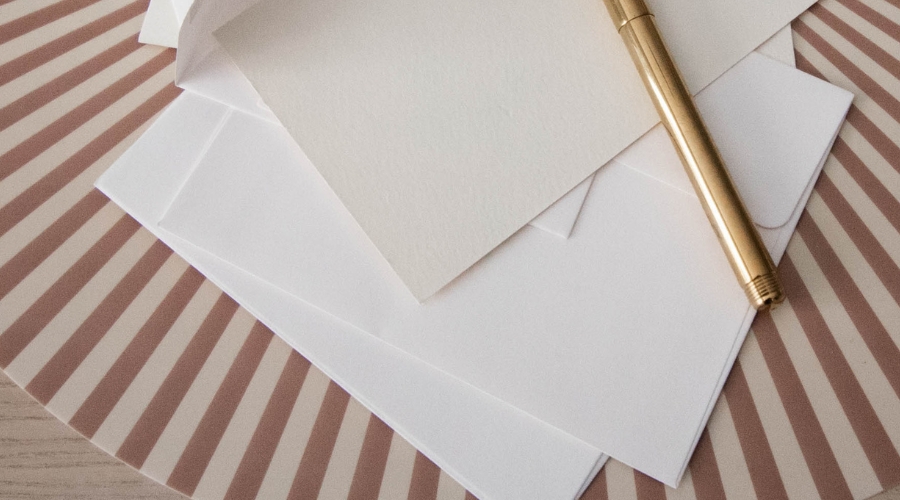6 Tips: How to Stick to Journaling To Make It A Habit

Knowing how to stick to journaling is important for several reasons, as it can have a profound impact on various aspects of your life:
If you’ve tried to journal regularly many times, and you have failed every single one of them… You are not alone.
Many people want to journal but find it difficult to commit to a daily or even weekly practice. It’s understandable because we get caught up in the idea that a journal must be inspirational, beautiful, or worthy of review.
I discovered that once you get past all of those roadblocks, maintaining a journaling habit becomes much easier.
As an affiliate partner of various brands and sponsored content, we may earn commission on qualifying purchases. Disclaimer | Advertise With Us
Cultivating Consistency: A Guide to Making Journaling a Lifelong Habit
In today’s guide, we delve deep into the art and science of sticking to journaling, transforming it from a fleeting chore into a valuable practice in your daily routine.
1. Start Small and Allow The Habit to Form.
You can start journaling just by doing a line per day, you can do this in any journal or your bullet journal.
Don’t give yourself too much to do, and don’t feel pressured to use it daily.
Just by writing down one particular thing, whether it’s something that you are thankful for or something that happened throughout your day, just constrain yourself to one line per day.
If you’re nervous about starting a journaling habit or you get overwhelmed by feeling like you have to write 10 pages day and night, one line per day is a great place to start because it’s such a low barrier to entry.
Remember, journaling is not about being perfect, it’s about making the best effort possible and seeing improvement over time!
2. Create Your Own Journaling Routine.
Journaling has been proven to have many benefits, and it can be a great way for you to clear your head. But what is the best way to journal?
You may think that there is just one right way, but really there are many different ways that will work for you depending on your own preferences.
Some people find that journaling in the morning helps them feel more refreshed and energized, and it’s a great way to set their intentions and goals for the day.
Others prefer to journal in the evening or right before going to bed, as it can be used as a way to reflect on the day and process what happened.
That is why you should develop your own journaling routine that is tailored to your specific needs, schedule, and time constraints.
One of the best things about journaling is that there is no right or wrong way to do it!
So, experiment and find what works best for you.
3. Set Aside Time For Journaling
Now that you’ve created your own journaling routine that fits your needs, it’s time
As humans, sometimes we forget, as we can have so much going on in our lives. From work to housework, projects to friends and family, it feels that we are always “on the go”.
Setting specific times for when you are going to write, can help writing become semi-automatic.
You can begin with as little as 5 minutes per journaling session and gradually increase your time.
You can set a reminder on your phone to remind you to journal, with tip #1 in mind (start small).
Tip: Keep your journal in a visible place in your home so you will always see it and remember to use it.
4. Put Away Anything That Might Distract You.
“A cluttered space leads to a cluttered mind.”
Having a designated place for your journal will help you keep up the habit long term. And make sure that your designated journaling space isn’t cluttered with pieces of paper, old water bottles, etc.
Also, if you struggle to stick with journaling, put your phone in another room or somewhere out of sight. Phones are known to distract us.
Ideally, you want to be in a calming, quiet, and distraction-free environment.
If you don’t have that kind of space in your home, you can always go to the beach or nature with your pen and paper!
5. Don’t Force Yourself to Journal. You WILL Hate It!
Feeling like you HAVE to journal can lead to feelings of being overwhelmed, guilt, burnout, and self-judgment.
Try letting go of your expectations about what should happen. Think about what you want to get out of journaling. Also, don’t put too much pressure on yourself to journal.
You can write daily, weekly, monthly; whatever you want, or works for you.
If you don’t know what works for you, you can learn through trial and error.
Lastly, if it feels like you have to force yourself every time to journal, chances are you aren’t enjoying journaling, and that’s okay!
There are other ways of expressing yourself that might be more enjoyable for you.
6. Try Some Journal Prompts.
One of the challenges that many people face when starting a journaling practice is not knowing what to write about.
There are many different types of journal prompts; some are focused on creativity, while others might focus more on mindfulness or personal growth.
Check out these morning journal prompts to get you started!
Journal prompts give you some guidance and reminders to get the ball rolling both mentally and physically.
They will help guide you through starting your journaling habit. It just gives you an easy, quick prompt that you can write about.
However, I believe that the main benefit of journal prompts, particularly for beginners, is that they are an excellent way to get started writing without overthinking or feeling overwhelmed by an empty page.
Don’t worry, even the best writers can experience writer’s block!
Why is Sticking To Journaling So Hard?
Journaling is an excellent way to process your thoughts and feelings, but it can be difficult to find the time or motivation to do so.
However, the hardest part about journaling is honestly losing the filter.
Journaling can be super uncomfortable. But it’s the kind of discomfort that, once you get used to it, becomes insanely comfortable, like a hot tub that feels too hot when you first get in.
The benefits of journaling are numerous
There’s a reason why writing your thoughts down is recommended by so many people, whether it’s for personal or professional reasons! It can help you sleep better and be more creative in the long run.
Here are some more benefits of sticking to journaling:
Consistency Leads to Habit Formation
Journaling regularly helps turn it into a habit. The more it becomes a part of your daily routine, the easier it becomes to maintain. This consistency is crucial for reaping the long-term benefits of journaling.
Enhanced Self-Reflection and Growth
Regular journaling provides ongoing opportunities for self-reflection. By consistently engaging in this practice, you gain deeper insights into your thoughts, emotions, and behaviors, which can lead to personal growth and self-improvement.
Stress Reduction and Emotional Release
Journaling is a therapeutic tool for managing stress and anxiety. Consistently writing down your thoughts and feelings can be a form of emotional release, helping to clear your mind and reduce stress.
Tracking Progress and Achievements
Whether you’re journaling about personal goals, professional aspirations, or simply everyday life, sticking to it allows you to track your progress over time. You can look back at previous entries to see how far you’ve come, which can be incredibly motivating and rewarding.
Boosts Memory and Comprehension
Regular journaling can improve your memory and comprehension skills. The act of writing things down reinforces memory, and reviewing past entries can help in better understanding your life experiences.
Enhances Creativity
Keeping a journal can also be a creative outlet. Consistently writing encourages creative thinking and can lead to unexpected ideas and inspiration.
Improved Writing and Communication Skills
Regular writing naturally enhances your writing ability, which can translate into improved communication skills in other areas of your life.
Provides a Sense of Achievement
The discipline required to stick to journaling itself can be fulfilling. Over time, filling up pages of a journal can give a tangible sense of achievement and can be a testament to your commitment to self-care.
Facilitates Mindfulness
Regular journaling encourages mindfulness. It prompts you to be present in the moment as you reflect on your day, feelings, and experiences, contributing to a more mindful approach to life.
6 Tips On How to Stick to Journaling To Make It A Habit – Conclusion
Journaling can be a very rewarding activity. It is not always easy to maintain consistency, but with some practice and patience, you will find that it becomes easier.
Whether you are a seasoned journaling enthusiast or a curious newcomer, the strategies and insights shared in this post are designed to demystify the process, tackle common roadblocks, and infuse your journaling practice with a sense of purpose and joy.
However, with the right tools and mindset, journaling can seamlessly weave itself into the fabric of your life.
So if you’re looking to get started with this habit but don’t know where to start, here are the 6 tips that may work best for you.
- Start small.
- Create your own journaling routine.
- Set aside time for journaling.
- Put away anything that might distract you.
- Don’t force yourself to journal. You WILL hate it!
- Try some journal prompts.
Enjoy your transformative journey, unlocking the doors to a richer, more introspective life, one page at a time.








